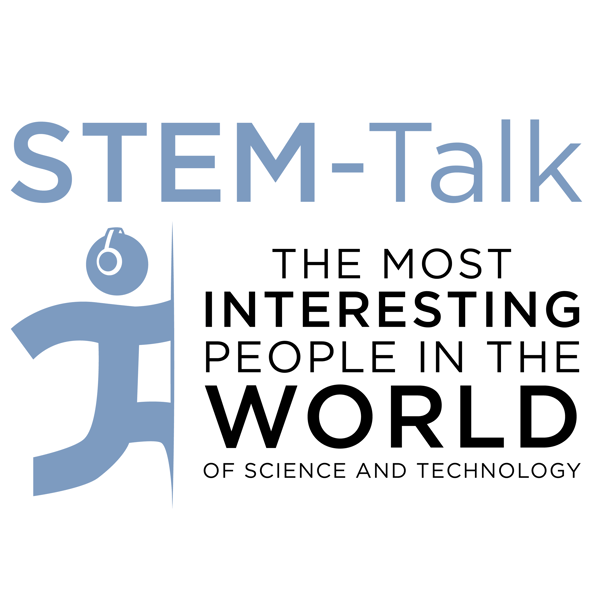Episode 100: Peter Attia gives an update on his views regarding longevity and health span
STEM-Talk
Dawn Kernagis and Ken Ford
4.6 • 694 Ratings
🗓️ 17 December 2019
⏱️ 63 minutes
🧾️ Download transcript
Summary
Transcript
Click on a timestamp to play from that location
| 0:00.0 | Welcome to STEM Talk. |
| 0:01.2 | Stem Talk. |
| 0:01.4 | Stem Talk. |
| 0:02.0 | Stem Talk. |
| 0:03.0 | Stem Talk. |
| 0:04.0 | Welcome to Stem Talk, where we introduce you to fascinating people who passionately inhabit the scientific and technical frontiers of our society. |
| 0:14.0 | Hi, I'm your host, Don Cornagus, and joining me to introduce today's podcast as a man behind the curtain, Dr. Ken Ford, IHM's director and chairman of the double secret selection committee that selects all the guests who appear on STEM Talk. |
| 0:25.6 | Hi, Don, great to be here today. |
| 0:28.6 | Well, Ken, we have a lot of good news to share today. So first, for the second time in three years, STEM talk won first place in the Science and Medicine category of the annual People's Choice Podcast Awards. |
| 0:41.4 | According to Todd Cochran, who founded the international competition in 2005, People's Choice |
| 0:46.4 | recognizes the top podcasts around the world as nominated by listeners. So anybody who is nominated |
| 0:50.8 | and wins, says Cochran, has significant bragging rights as being |
| 0:54.4 | listener favorites. So to you, our listeners, Ken and I, as well as all of us here at STEM Talk, |
| 0:59.2 | say a huge thank you. We truly appreciate all of your support. Indeed, we do, Don. We have been at this |
| 1:05.8 | for a little more than three years now and have had over two million downloads of STEM talk at this point. |
| 1:12.2 | And that brings me to the other good news we have to share. |
| 1:14.9 | Today's episode represents a milestone for us. |
| 1:17.5 | It is, drum roll please, our 100th episode. |
| 1:23.7 | So Ken, I know the Double Secret Selection Committee has been putting a lot of thought into today's |
| 1:28.6 | guests. As chairman of the committee, what did the committee decide? Well, after careful |
| 1:35.7 | deliberation, the Double Secret Selection Committee decided that it was only fitting to have |
| 1:41.6 | our first guest, Peter Attia, return for this milestone episode. |
... |
Please login to see the full transcript.
Disclaimer: The podcast and artwork embedded on this page are from Dawn Kernagis and Ken Ford, and are the property of its owner and not affiliated with or endorsed by Tapesearch.
Generated transcripts are the property of Dawn Kernagis and Ken Ford and are distributed freely under the Fair Use doctrine. Transcripts generated by Tapesearch are not guaranteed to be accurate.
Copyright © Tapesearch 2025.

